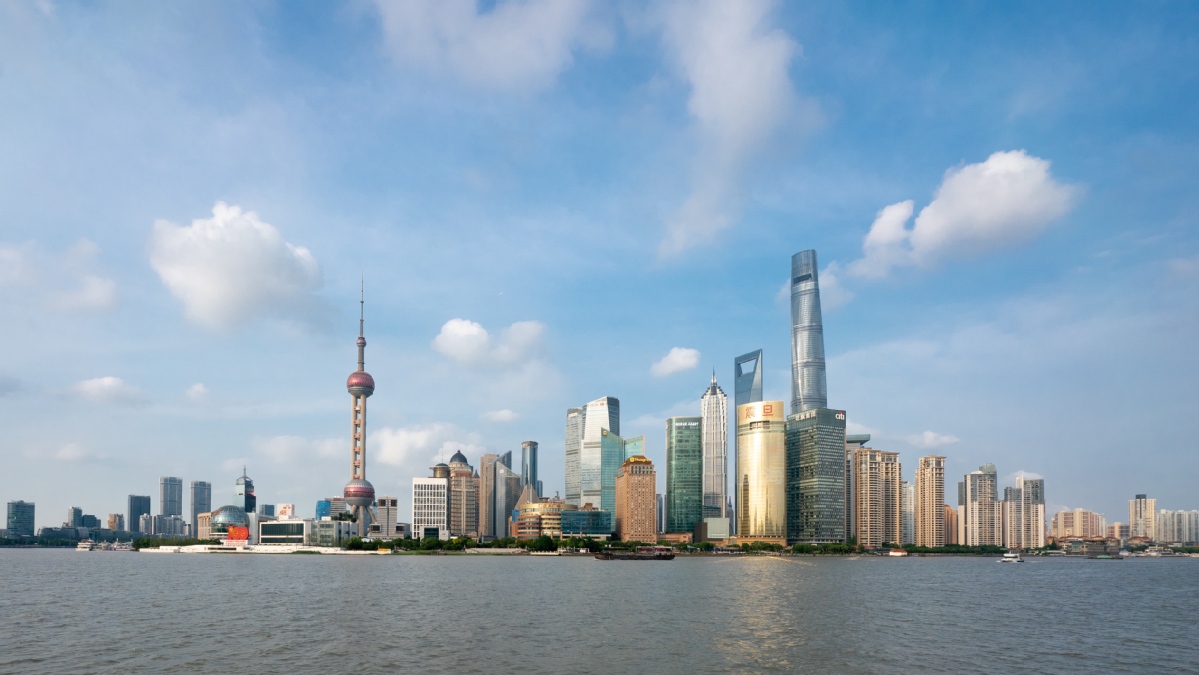Pudong New Area keen on further opening-up
Shanghai mulls relaxed entry to telecom, internet, education, culture, healthcare sectors


Shanghai should further advance institutional opening-up and improve the business environment to consolidate its position as an optimal destination for investors worldwide, officials and company executives said.
They made the remarks during a series of promotional conferences held on Thursday, which were part of the ongoing eighth China International Import Expo that kicked off in Shanghai on Wednesday.
Shanghai Mayor Gong Zheng said Pudong New Area is carrying out comprehensive market entry relaxation in the fields of telecommunication, internet, education, culture and healthcare.
While exploring green trade and offshore services addressing companies' outbound outreaches, Pudong is striving for breakthroughs in cross-border data flows and whole-process intellectual property rights protections, Gong said.
To further advance industrial modernization, Pudong is making earlier-than-anticipated plans regarding future-oriented manufacturing, information and healthcare, while enriching the application scenarios for humanoid robots, the low-altitude economy and new-type energies, he said.
Wu Jincheng, government head of Pudong, said the district is heading for an overall alignment with the 22 sectors as set out in the OECD Services Trade Restrictiveness Index. It will also better align with the 10 indicators in the World Bank B-Ready assessment to advance the opening-up in digital trade and trade in services, he said.
Pudong has largely met the opening-up standards laid out in the core provisions of the Comprehensive and Progressive Agreement for Trans-Pacific Partnership (CPTPP) and the Digital Economy Partnership Agreement (DEPA). In a World Bank report released in May, Pudong has achieved a world-leading level for 22 assessed categories such as fair market competition and access to financial services, said Wu.
Davide Bruschi, managing director of Casappa Hydraulics (Shanghai) Ltd, an Italy-based pump and motor company, said they will open a new factory in Pudong next year to strengthen their position in Shanghai, which is becoming the most important hub for the group in Asia.
The progress to be anticipated in Pudong is just one snapshot of Shanghai's continued efforts to attract more investment via improving its business environment.
Gong said during a city investment promotion conference that Shanghai will initiate more reforms and advance its openness to come up with more internationally competitive policies and mechanisms. More innovative measures can be anticipated, including accessing market resources more easily, lowering companies' operating costs and improving government services efficiency, he said.
With its Asia-Pacific headquarters built in Shanghai, Italy's UFI Filters sees seven out of its 22 global manufacturing plants based in China. Simone Trazzi, the company's CEO for the Asia-Pacific and India, said UFI's sales have grown by 55 percent over the past four years, and this success has been powered by China. It has full confidence in China's future and is committed to supporting the country's green transition, he said.
Jiang Xiaojuan, honorary president of the China Society of Industrial Economics, said China has taken a different role in the international division of labor in recent years, changing from complementary cooperation to horizontal cooperation.
While Pudong is well grounded with its industrial layout, it can take the lead in such transformation, with companies better prepared for fair competition and compliance, and the government providing a more relaxed environment for the two-way flow of products, capital and technologies, Jiang said.
Ye Yongqing, founder and CEO of smart supply chain solutions provider Ehsy.com, said Chinese companies used to integrate into global supply chains with their production strength. But they are now more connected to the rest of the world as well-established brands, with the transformation somehow speeding up despite geopolitical tensions.
The favorable policies to facilitate companies' outbound reaches in Shanghai — for example, the convenient Customs policies in Pudong and the higher efficiency to be expected in the flow of goods and people — can further accelerate the transformation of Chinese companies, Ye added.
shijing@chinadaily.com.cn




































